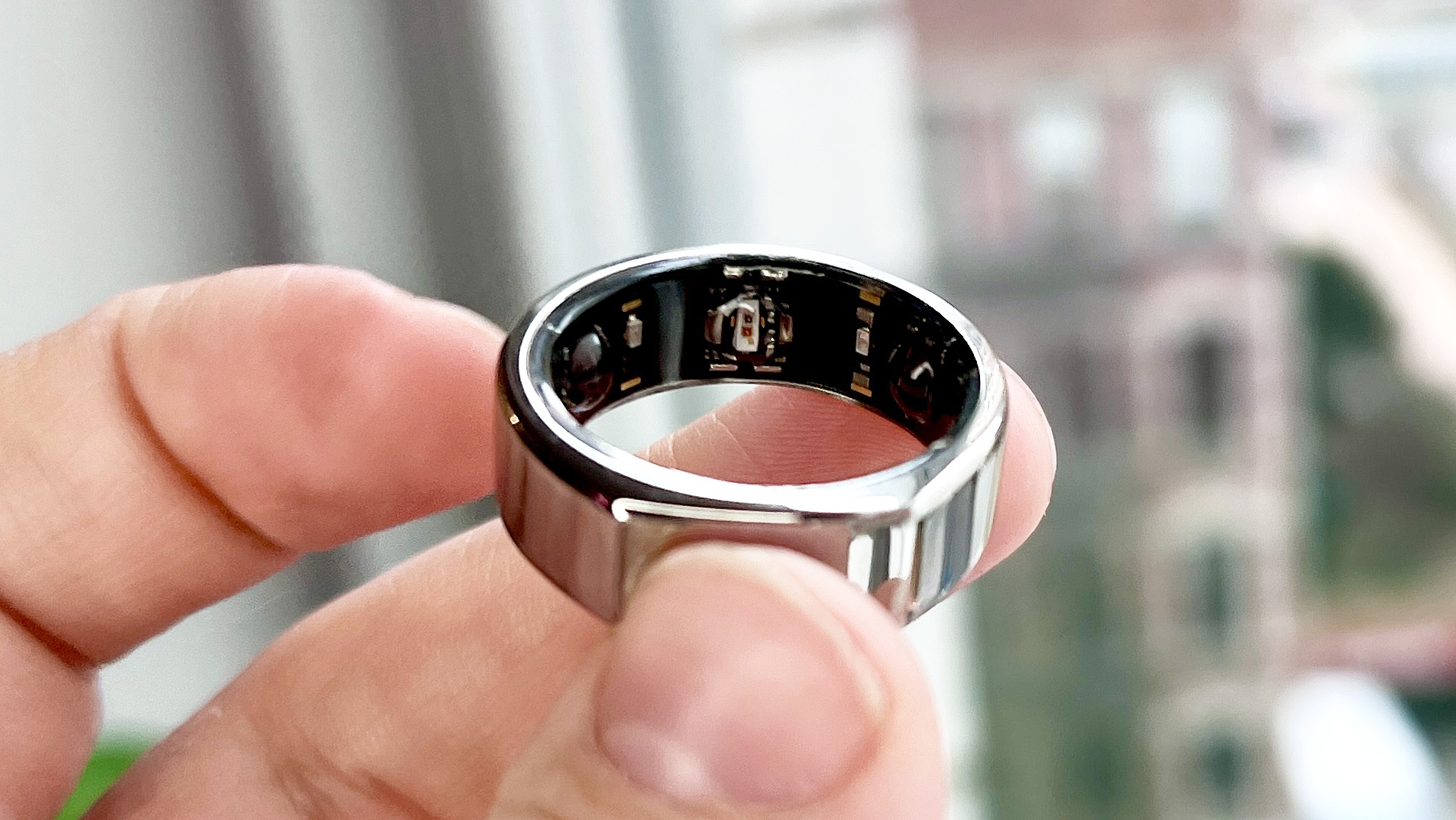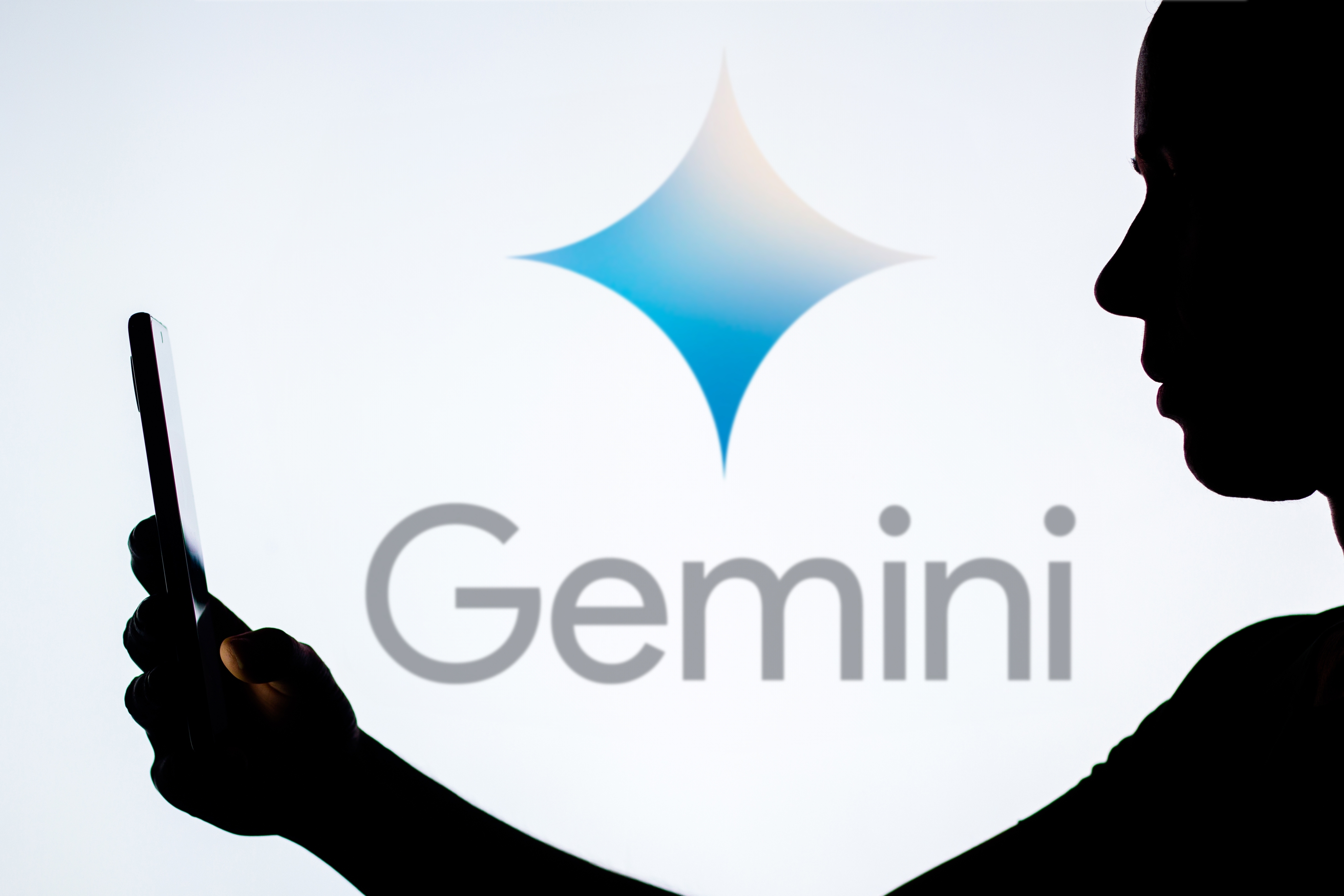AI could help us live longer and healthier lives — and it all comes down to data
All those wearables will come into their own

Here at Tom’s Guide our expert editors are committed to bringing you the best news, reviews and guides to help you stay informed and ahead of the curve!
You are now subscribed
Your newsletter sign-up was successful
Want to add more newsletters?

Daily (Mon-Sun)
Tom's Guide Daily
Sign up to get the latest updates on all of your favorite content! From cutting-edge tech news and the hottest streaming buzz to unbeatable deals on the best products and in-depth reviews, we’ve got you covered.

Weekly on Thursday
Tom's AI Guide
Be AI savvy with your weekly newsletter summing up all the biggest AI news you need to know. Plus, analysis from our AI editor and tips on how to use the latest AI tools!

Weekly on Friday
Tom's iGuide
Unlock the vast world of Apple news straight to your inbox. With coverage on everything from exciting product launches to essential software updates, this is your go-to source for the latest updates on all the best Apple content.

Weekly on Monday
Tom's Streaming Guide
Our weekly newsletter is expertly crafted to immerse you in the world of streaming. Stay updated on the latest releases and our top recommendations across your favorite streaming platforms.
Join the club
Get full access to premium articles, exclusive features and a growing list of member rewards.
AI is about to trigger a seismic shift in the way we tackle healthcare, and it’s not a moment too soon. Our ageing populations, along with cash starved hospitals and overworked staff, have seen a steady deterioration in the scope and quality of medical care provided on a day to day basis.
Too many people have experienced delays, mistakes and cancellations while trying to receive proper treatment, but suddenly a white knight has appeared on the horizon.
Artificial intelligence has emerged as a powerful and effective way to deal with many of the problems plaguing the medical profession.
As author Eric Topol explains in his book Deep Medicine: How Artificial Intelligence Can Make Healthcare Human Again, "the greatest opportunity offered by AI is not reducing errors or workloads, or even curing cancer: it is the opportunity to restore the precious and time-honored connection and trust."
Wearables driving the data explosion
This new paper on ✨Med-Gemini✨ research from @GoogleResearch and @GoogleDeepMind shows how the multimodal and long context capabilities of Gemini 1.5 can be used to get state-of-the-art results on a variety of 2D and 3D medical imaging and genomic risk score tasks.… https://t.co/XHPl5z46YK pic.twitter.com/Oa7aDCNheXMay 7, 2024
The tech industry has not been slow to take advantage of the demand for these new tools, and some surprising new players have entered the ring. US giant Apple is reportedly developing a new AI powered health coach and mood tracker codenamed Quartz.
One key aspect of this is predictive analysis, where cameras and sensors are integrated with intelligent software to pick up early signs of possible patient issues before they can become life threatening.
The product, which gives users custom workout routines based on Apple Watch data, is similar to the latest offering from Google and Fitbit, which uses the Gemini model to offer personalized health tips and programs.
But these chat applications are only the tip of the medical iceberg. A growing category of equipment known as Internet of Medical Things devices (IoMT) will increasingly feature advanced AI to provide sophisticated remote and local monitoring to bolster patient care. One key aspect of this is predictive analysis, where cameras and sensors are integrated with intelligent software to pick up early signs of possible patient issues before they can become life threatening.
Get instant access to breaking news, the hottest reviews, great deals and helpful tips.
A team at Swansea University also recently demonstrated a system which could deliver test results for issues such as cardiovascular disorders, joint problems and Alzheimer’s in two minutes using little more than a fingertip sample. The research, which is still in early stages, shows the promise of how AI and machine learning can dramatically speed up the delivery of vital diagnoses to hospitals and doctors.
In a similar vein, researchers are closing in on the potential use of smart contact lenses to monitor blood glucose levels as a means of tracking and treating diabetes. The initiative was originally started by Google and Novartis a decade ago, but a research paper released last month from Yonsei University in the Republic of Korea, has demonstrated real progress in animal and human trials of the technology.
Growing value of patient data

At the heart of this brave new world is data. Specifically our ‘electronic health records’ patient data. It’s hardly a surprise then, that last year’s controversial $411 million, five year contract to handle the UK’s national health service patient records should be won by Palantir, a well known US spy tech company. Data, and especially patient data, is going to become a very valuable commodity as we tiptoe cautiously into this new AI age.
One powerful demonstration of just how important machine learning is likely to be our future health and well-being comes from the news this week that Med-Gemini, a collaborative set of medical AI models from Google and Microsoft, achieved a 91.1% accuracy in running scans on complex patient health data.
This included ‘needle in a haystack’ searches to find subtle and rare medical conditions or symptoms, which might otherwise have been missed by human eyes. The system also performed well on medical evaluations using a chat bot, asking appropriate questions and making correct diagnoses. The research team was cautiously optimistic about the results, especially regarding "its potential to significantly reduce cognitive load and augment clinicians’ capabilities."
The future of health is AI

It’s still early days in the drive to embed AI into our global healthcare systems. However the signs are that we’re at the cusp of something significant in terms of AI assisted prognoses, preventative medicine and treatments.
Most observers stress, however, that the real need is to give medical professionals the tools to improve outcomes, not just overturn the whole system.
As Mihaela van der Schaar, director of the Centre for AI in Medicine at Cambridge University, explains, “We need to make sure that we design and build AI to help healthcare professionals be better at what they do...not to replace them,”
More from Tom's Guide
- OpenAI could drop its own search engine on Monday — here’s what it needs to take on Google
- WhatsApp drops surprise design update — it's rounder and darker now
- iPad Air 2024 vs iPad Pro 2024: Biggest differences explained

Nigel Powell is an author, columnist, and consultant with over 30 years of experience in the technology industry. He produced the weekly Don't Panic technology column in the Sunday Times newspaper for 16 years and is the author of the Sunday Times book of Computer Answers, published by Harper Collins. He has been a technology pundit on Sky Television's Global Village program and a regular contributor to BBC Radio Five's Men's Hour.
He has an Honours degree in law (LLB) and a Master's Degree in Business Administration (MBA), and his work has made him an expert in all things software, AI, security, privacy, mobile, and other tech innovations. Nigel currently lives in West London and enjoys spending time meditating and listening to music.
 Club Benefits
Club Benefits















